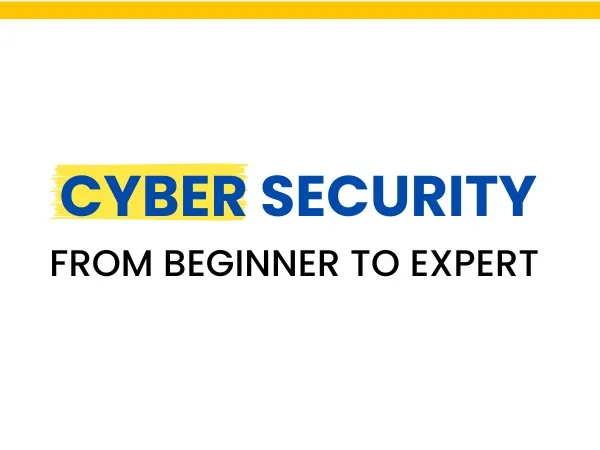Cyber Security Course | DCode Institut
Cyber Security Course at DCode Institute - Unlock Your Future in Cyber Security
In today's digital world, the need for skilled cybersecurity professionals has never been greater. At DCode Institute, our Cyber Security course offers you the chance to gain hands-on experience and expert knowledge in the latest security technologies. Whether you're just starting out or looking to upskill, our course is designed to set you on the path to becoming a sought-after cybersecurity expert.
- 5.0
- Certificate
- All levels
- Online
- Offline
- English-Hindi-Gujarati
Cyber Security Course
The Predicious Features For You!
- Dcode Institute Develops Logical Thinking
- Dcode Institute Improves Coding Skills.
- Dcode Institute Helps You Work Smartly
- Coding Empower Your Life
Book online class
Course Description
The Cyber Security Course at DCode Institute is a comprehensive training program designed to provide individuals with the essential knowledge and practical skills needed to secure digital systems, protect data, and defend against the ever-growing threat of cyberattacks. Whether you are new to the field or looking to enhance your existing skills, this course will provide you with the expertise to launch or advance your career in cyber security.
Expert-Led Instruction: Learn from industry professionals with years of real-world experience in cyber security.
Hands-On Learning: Gain practical, hands-on experience with tools and techniques used by cyber security experts, including penetration testing, malware analysis, and network security.
What you’ll learn
- Understand Virtual Private Networks (VPNs), secure Wi-Fi, and other networking technologies.
- Learn about the various types of cyber threats, attacks, and how to mitigate them.
- Master network protocols and how they can be exploited.
- Learn how to conduct penetration tests, assess security gaps, and simulate cyberattacks to improve defenses.
- Develop skills to create and implement incident response plans for organizations.
- Learn about cloud security models, tools, and best practices for securing public, private, and hybrid clouds.
- Understand cloud vulnerabilities and how to protect data and applications in cloud computing environments.
- Understand threat intelligence tools and techniques used to analyze and respond to emerging cyber threats.
- Explore Security Information and Event Management (SIEM) systems and how they play a role in proactive defense.
About Instructor
Instructor Vijay Patel likely brings practical industry experience to the course, which would be valuable for students wanting to pursue careers in cyber security.
For more details on the course and Vijay Patel's teaching approach, I recommend contacting DCode Institute directly or visiting their website for the course syllabus, enrollment process, and any testimonials from previous students.
- Mail ID:[email protected]
- Web:https://dcodeinstitute.in
Our Student Reviews
4.5
(Based on todays review)
Amarsang Vaghela
2 days ago
"I have thoroughly enjoyed the Cyber Security course at DCode Institute. The course was detailed and comprehensive, covering everything from basic security concepts to advanced penetration testing techniques. Instructor Vijay Patel’s teaching style is clear and practical. The hands-on labs allowed me to implement the theory in real-world scenarios, which made the learning process highly engaging."
Mukesh Solanki
1 days ago
"I learned a lot from this course, especially about network security and ethical hacking. The instructor was very knowledgeable and explained complex topics in a simplified way. However, I feel the course could include more exercises related to malware analysis. Overall, I feel confident about pursuing a career in cyber security."
Piyush Vaghela
2 days ago
"This course was exactly what I needed to build my career in cyber security. The pace was great, and the hands-on experience with tools like Kali Linux and Metasploit was incredibly useful. I appreciated the clear explanations and the real-world examples that were included throughout the course. Highly recommend it!"
Leave a Review
Frequently Asked Questions
This course includes
- Skills Beginner
- Language English
- Certificate Yes






